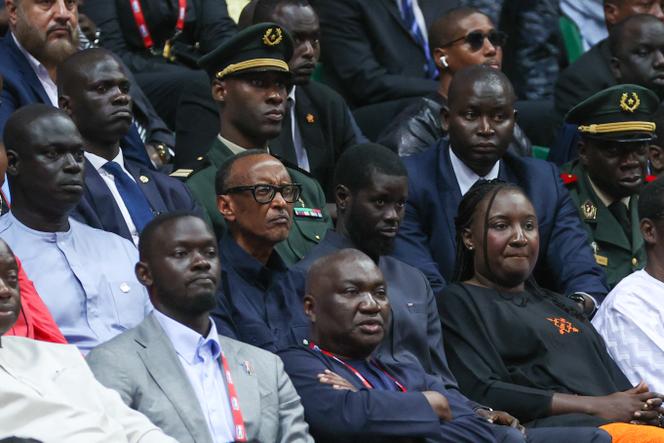


A small, landlocked country with limited economic clout, Rwanda, whose president, Paul Kagame, is due to be re-elected in the July 15 election that's considered a foregone conclusion, has become a key player for several of Africa's great powers, starting with France.
Despite Kigali's military support for the March 23 Movement (M23) rebellion in the east of the Democratic Republic of Congo (DRC), documented by United Nations experts, Kinshasa's demands for international sanctions have so far gone unheeded. This has not prevented a number of Western governments, led by France, from deploying major diplomatic efforts to strengthen their relationship with Kigali. "It's a pole of stability in the region and on the African continent, which France intends to use to move away from its former colonies," said a French diplomat.
As illustrated by the "Rwanda Classified" investigation conducted by Le Monde and the Forbidden Stories collective, Rwanda has made itself indispensable to the international community in Africa. And the country has become what's called a "donor darling" – donors appreciate the profitability of their investments and the solvency of their creditor.
"Rwanda Classified," an investigation into Paul Kagame's regime, involves 50 journalists from 17 media outlets in 11 countries, coordinated by the Forbidden Stories journalism non-profit. Starting with the suspicious death of journalist John Williams Ntwali in Kigali in January 2023, the investigation aims to reveal the repressive machinery implemented by Rwanda, including beyond its borders, far from the image of a model country promoted abroad. The July 15 Rwandan presidential race is likely to lead to the re-election of Paul Kagame for a fourth term.
At the end of April, just a few days after Congolese President Félix Tshisekedi's visit to the Elysée, during which French President Emmanuel Macron requested the withdrawal of Rwandan troops from the DRC, the French-Rwandan Joint Military Commission met in Paris to take stock of security cooperation between the two countries. "A modest but very real cooperation in the field of training," according to an official French source.
On the African continent too, Rwanda is being spared. Regional organizations – the East African Community (EAC) and the Southern African Development Community (SADC) – have each sent armed contingents to bring peace to the Kivus. But the EAC left after a year, while the SADC have been moving backward since January. And the African Union (AU), whose rotating presidency is currently held by the head of the Islamic Republic of Mauritania, Mohamed Ould Ghazouani, is looking elsewhere.

Rwanda seems to attract more than it repels. On May 11, Bassirou Diomaye Faye, Senegal's new president, received his first foreign guest since his election on April 2: none other than Kagame. Following this, the Rwandan head of state, whose longevity (in power since 1994) is the stuff of dreams for many of his peers, flew to Conakry. There, too, he was received with all honors by the head of the military junta, Mamadi Doumbouya. In neither Senegal nor Guinea was there any public talk of solidarity with Kinshasa. Instead, press articles were full of praise for Kagame's pan-Africanist stance. He who has not given up on waking up a still lethargic African Union, nor on reforming its functioning. He who, as a fierce sovereignist with a steely gaze, holds his own with the world's heavyweights.
You have 62.99% of this article left to read. The rest is for subscribers only.
